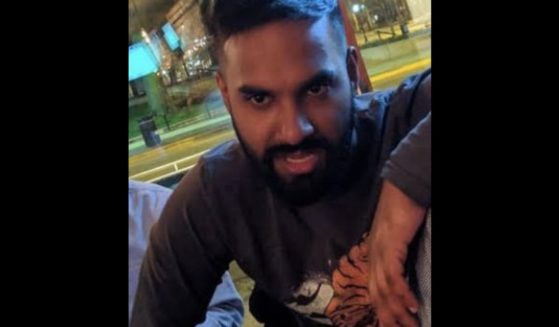People living with incurable cancers urge more research
ATLANTA (AP) — Tom Smith hesitated to buy light bulbs guaranteed for up to 10 years, thinking they’d outlast him. Terry Langbaum debated filling a prescription for a $13,000-a-month drug that keeps cancer from worsening for three months on average and carries six pages of warnings.
“There are so many of us living with cancers that can’t be cured,” Langbaum said. “We study the treatments but we don’t study what it’s like to be the person going through treatment.”
Millions of people live with metastatic cancer — disease that has spread through the body and is considered incurable. They are surviving longer as treatments improve, often seeing cancer subside and flare again and again. Now many are pushing to be included more widely in research and to have it focus more on the patient’s point of view.
“It’s really about time that happened,” said Dr. Elizabeth Jaffee, deputy director of Johns Hopkins University’s Sidney Kimmel Cancer Center. Patients should be asked what side effects and risks they’ll accept, “not just treated as research subjects,” she said.
Jaffee is president of the American Association for Cancer Research, and its annual meeting this week in Atlanta featured many talks on the need for involving patients more in metastatic cancer research. Smith is a doctor and palliative care chief at Hopkins who is being treated for metastatic prostate cancer. Langbaum is a Hopkins administrator who developed three other cancers from radiation treatments for her first one 37 years ago. Smith and Langbaum wrote about their experiences Wednesday in the New England Journal of Medicine.
Guidelines on how cancer survivors should be monitored later in life often assume the disease is in remission rather than still being treated, they wrote. Many patients now live for years with advanced cancer: Sixteen percent of people with widely spread lung cancer survive five years. Patients wonder if they should have genetic testing, how they’ll deal with the cost of treatment and whether their doctors can keep up with the latest discoveries.
“We could also use some guidance even on seemingly irrelevant health decisions,” such as whether it’s worth it to be tested for other medical conditions or to take a cholesterol-lowering medicine “when you don’t even know if you should take a chance on purchasing airline tickets for a summer vacation,” Smith and Langbaum wrote .
Smith said hormone therapy and dozens of radiation treatments for his prostate cancer caused extreme fatigue. A marathoner, he said he “went from somebody who could run 50 miles, or 26 miles, to somebody who gets short of breath going up the stairs.”
“I’ve got terrible sleep, hot flashes every 45 minutes,” mood swings and depression, he said. Last summer, “I actually admitted myself to the hospital so I wouldn’t kill myself.”
A good psychiatrist, help from his family and a support group, and a new antidepressant have helped.
When she was 34, Langbaum was treated for Hodgkin lymphoma with radiation that led to breast and stomach cancers in later years. Two years ago, doctors found an unusual and inoperable soft tissue cancer called a sarcoma between her throat and windpipe. She said she has lived “in this constant fear of the other shoe dropping.”
Billy Foster, a jazz pianist and radio show host from Gary, Indiana, who spoke at the Atlanta conference as a patient advocate, talked about the uncertainty cancer patients live with. Foster had a cancerous kidney removed in 1996, but in 2007 learned the disease had spread to his lungs, liver and brain.
“They say if you go five years, you’re kind of in the clear,” but that’s often not true, Foster said. He joined a study testing an experimental drug that helped him for five years until the company abandoned it.
“It wasn’t working for enough people but it was saving my life,” Foster said. His doctor persuaded the company to keep making the drug for him for another year, long enough for a new drug to come out that seems to be keeping his cancer in check.
Several studies are examining “what allows some people to live a very long time with incurable cancer,” said Dr. Mark Burkard, who is leading one at the University of Wisconsin in Madison for breast cancer. Around 750 women have given extensive details on their treatments and lifestyles, and tumor samples are being analyzed for genetic clues.
Langbaum and Smith say they are focusing on living. She filled the prescription she’d been debating. He bought the long-lasting light bulbs.
“I figured, even if I can’t enjoy them, the next person who lives in our house might,” he said.
___
Marilynn Marchione can be followed at http://twitter.com/MMarchioneAP
___
The Associated Press Health & Science Department receives support from the Howard Hughes Medical Institute’s Department of Science Education. The AP is solely responsible for all content.
The Western Journal has not reviewed this Associated Press story prior to publication. Therefore, it may contain editorial bias or may in some other way not meet our normal editorial standards. It is provided to our readers as a service from The Western Journal.
Truth and Accuracy
We are committed to truth and accuracy in all of our journalism. Read our editorial standards.












